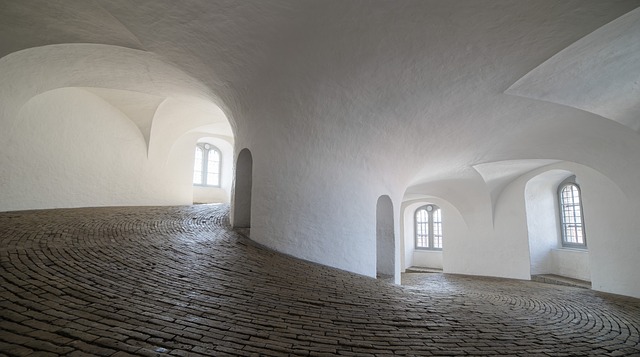A room with a view – or how cultural differences matter in room size perception

A room with a view - cultural differences exist in spatial volume perception Max Planck Institute for Biological Cybernetics
The team used a psychophysical task in which participants had to judge whether a rectangular room was larger or smaller than a square room of reference.
They then systematically varied the room rectangularity (depth to width aspect ratio) and the viewpoint (middle of the short wall vs. long wall) from which the room was viewed. South Koreans were significantly less biased by room rectangularity and viewpoint than their German counterparts.
These results are in line with previous notions of general cognitive processing strategies being more context dependent in East Asian societies than Western ones. These findings point to the necessity of considering culturally-specific cognitive processing strategies in visual spatial cognition research.
Overall, the results confirm a previous hypothesis that Germans are more sensitive to biases in room size perception due to an overutilization of one single dimension (the depth) instead of taking into account all dimensions of the room.
Although one cannot define which cognitive processes are underlying the strategies employed by each population in this task, it raises interesting questions regarding cultural difference in perceptual processes of indoor space.
These findings offer potential applications for designing public and private spaces in a culturally sensitive manner (e.g. space stations). A common issue in urban planning for living and transportation is how to gain sensation of spaciousness within a limited physical space. The studies at the MPI for biological Cybernetics could be used as a guideline for predicting perception of room size in interior architectural design.
Original Publication:
PLOS ONE: http://journals.plos.org/plosone/article?id=10.1371/journal.pone.0176115
Authors: Aurelie Saulton, Heinrich H. Bülthoff, Stephan de la Rosa, Trevor J. Dodds
Contact:
Scientist Dr. Stephan de la Rosa
Phone: +49 7071 601- 606
E-mail: delarosa[at]tuebingen.mpg.de
Media Liaison Officer Beate Fülle
Head of Communications and Public Relations
Phone: +49 (0)7071 601-777
E-mail: presse-kyb[at]tuebingen.mpg.de
Max Planck Institute for Biological Cybernetics
The Max Planck Institute for Biological Cybernetics deals with the processing of signals and information in the brain. We know that our brain must constantly process an immense wealth of sensory impressions to coordinate our behavior and enable us to interact with our environment. It is, however, surprisingly little known how our brain actually manages to perceive, recognize and learn. The scientists at the Max Planck Institute for Biological Cybernetics are therefore looking into the question of which signals and processes are necessary in order to generate a consistent picture of our environment and the corresponding behavior from the various sensory information. Scientists from three departments and seven research groups work on fundamental questions of brain research using different approaches and methods.
Media Contact
All latest news from the category: Life Sciences and Chemistry
Articles and reports from the Life Sciences and chemistry area deal with applied and basic research into modern biology, chemistry and human medicine.
Valuable information can be found on a range of life sciences fields including bacteriology, biochemistry, bionics, bioinformatics, biophysics, biotechnology, genetics, geobotany, human biology, marine biology, microbiology, molecular biology, cellular biology, zoology, bioinorganic chemistry, microchemistry and environmental chemistry.
Newest articles

A ‘language’ for ML models to predict nanopore properties
A large number of 2D materials like graphene can have nanopores – small holes formed by missing atoms through which foreign substances can pass. The properties of these nanopores dictate many…

Clinically validated, wearable ultrasound patch
… for continuous blood pressure monitoring. A team of researchers at the University of California San Diego has developed a new and improved wearable ultrasound patch for continuous and noninvasive…

A new puzzle piece for string theory research
Dr. Ksenia Fedosova from the Cluster of Excellence Mathematics Münster, along with an international research team, has proven a conjecture in string theory that physicists had proposed regarding certain equations….



